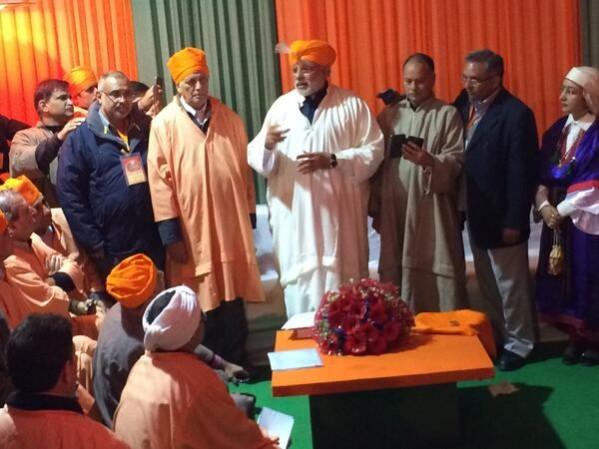As many as 520 displaced persons have returned to Kashmir Valley for taking up the jobs under the Prime Minister's Development Package-2015 after the abrogation of Article 370.
Furthermore, authorities have also restored nine ancestral properties of displaced persons, who were forced to leave their homes and hearths after the eruption of terrorism in Kashmir Valley.
Replying to a question of Anil Desai, the Minister of State for Home Affairs, Nityanand Rai informed the Rajya Sabha that "as per the information provided by the Government of Jammu & Kashmir, after the abrogation of Article 370, a total of 520 migrants have returned to Kashmir for taking up the jobs under the Prime Minister's Development Package-2015".

District Magistrates appointed as custodians of properties
The Minister informed that under the J&K Migrant Immovable Property (Preservation, Protection & Restraint on Distress Sales) Act, 1997, District Magistrates (DMs) of concerned districts in Jammu and Kashmir are the legal custodians of the immovable properties of migrants, who take suo motto action on eviction proceedings in cases of encroachment. The migrants can also request DMs in such cases. He said that the government has taken steps to restore the ancestral property of displaced persons who had to run away from Kashmir in the wake of terrorist violence there.
Central laws extended in J&K
The minister further informed that after implementation of the Jammu and Kashmir Reorganisation Act, 2019 from all central laws are applicable to the Union Territory of Jammu and Kashmir with effect from 31st October 2019.

After 5th August 2019, all provisions of the Constitution of India have been made applicable to the Union territory of Jammu and Kashmir (J&K) which necessitated changes in existing laws in J&K by Adaptation Orders so as to conform with the provisions of the Constitution of India. As per the adapted Land Revenue Act of Jammu and Kashmir, the Government of Jammu and Kashmir may, by notification in the official gazette, allow transfer of land for public purposes such as healthcare and education.
The J&K Agrarian Reforms Act, 1976 is still in force
Replying to a question of Akhilesh Prasad Singh, the minister informed that under the Jammu and Kashmir Big Landed Estates Abolition Act, 1950, the land was transferred to the tillers. The Act also prescribed a limit to the right of ownership of 182 standard kanals (22.75 acres).
However, this Act has been repealed and there is another legislation i.e. The Jammu & Kashmir Agrarian Reforms Act, 1976, for transfer of land to tillers which is in force. This Act prescribes a ceiling restriction of 100 standard kanals (12.5 acres).

















